De-mystifying Probiotic Foods
March 16, 2017Who said being healthy couldn’t be delicious!
Probiotics live inside some of the tastiest food around. Miracle workers at regulating gut health, these wellbeing crusaders can also help you lose weight, increase immunity and improve mood. Sounds to good to be true, right? Wrong! But what foods should you be eating? Where are these tasty morsels! Lucky for you, we have compiled a list of the foods along with the most delicious ways to introduce them to your diet.
Before we jump into that though, we asked nutritionist Stephanie Abou-Antoun and our in-house dietitian and nutritionist Hannah to de-mystify the secrets of probiotics once and for all.
What exactly are probiotics?
They’re the ‘live’ active friendly bacteria that help maintain a healthy gut by reducing the number of ‘bad’ bacteria in our intestine. The most common types of probiotics are Bifidobacteria and Lactobacilli spp.
How do they help?
Our gut is full of both good and bad bacteria. Probiotics are a ‘good’ type of bacteria that helps to keep our gut health and body healthy.
They can assist our bodies in two ways, they help balance the ‘good’ and ‘bad’ bacteria to keep our gut functioning well AND they can help replace the ‘good’ bacteria when gut balance is disturbed due to stress, illness, infection.
Are there any risks?
LAB have been used in foods for thousands of years. They are micro-organisms considered non-toxic and generally recognised as safe.
Generally, foods containing probiotics and probiotic supplements are thought to be safe for most people. However, they’re not advised for people with severe illnesses or who are immunocompromised.
Are there different varieties of probiotics?
So many! But LAB strains are the most common in food products. Each strain of probiotics has it’s own benefit to health.
What are the benefits of probiotics?
Clinical evidence suggests that probiotics can assist in the:
- Treatment of diarrhea
- Reduce the symptoms of irritable bowel syndrome
There is some evidence to suggest (in other ways, the jury is still out) that probiotics can assist to:
- Reduce the symptoms of irritable bowel disease
- Aid in a healthy immune system
- Aid digestion
- Aid in mental wellbeing
Researchers are currently looking at the direct link between gut bacteria and obesity and metabolic disorders e.g. diabetes.
Are there any myths about probiotics that need debunking?
Because there are many different strains of probiotics, the kind you are getting in a product might not be beneficial for your needs. This is where microbiota biomarking, or getting your own unique blend of gut microbiota screened, is developing and may have uses. A screen could tell you what levels of bacteria live in your gut, then a counteractive probiotic could be prescribed. This method is still being research and developed by worth keeping an eye on. But if you are already fit and healthy with a with happy gut bacteria, consuming more probiotics wont turn you in to a super human. Think of the probiotics as little bacteria police. When the bad guys are in town, they come and take care of them. But if there’s no problem, they just move along.
What would be your top 3 tips for someone looking to get into probiotics?
1) Go for products that have the CFU (colony forming units) on the label. That’s how many probiotics are in the product. Why? The probiotic market is challenged by a lack of standard guidelines; there’s no real policing of claims. So you’ll see lots of products that say they contain probiotics on the label, but then don’t say how much or what kind. I’d avoid these products because that’s a signal the manufacturer hasn’t done their research. There’s lots of manufacturers jumping on the probiotic bandwagon. They know consumers are becoming more interested in health and lure them in with marketing.
2) Don’t forget homemade! You don’t have to spend an arm and a leg on pharmacy probiotic supplements or expensive probiotic yoghurts and other foods. Not everyone has access to a laboratory, but a recent study I was part of found homemade yoghurt to have more probiotic content than the leading probiotic yoghurt brand. Homemade is cheaper too. Just remember probiotic content will vary depending on your recipe.
3) Most Australian products I’ve tested contain ≥107 CFU/ml, and as such as are a viable source of probiotics. Dairy-based probiotic products are especially commendable. But if you are lactose intolerant or have dairy allergies, then sauerkraut and Kim Chi are a good place to start.
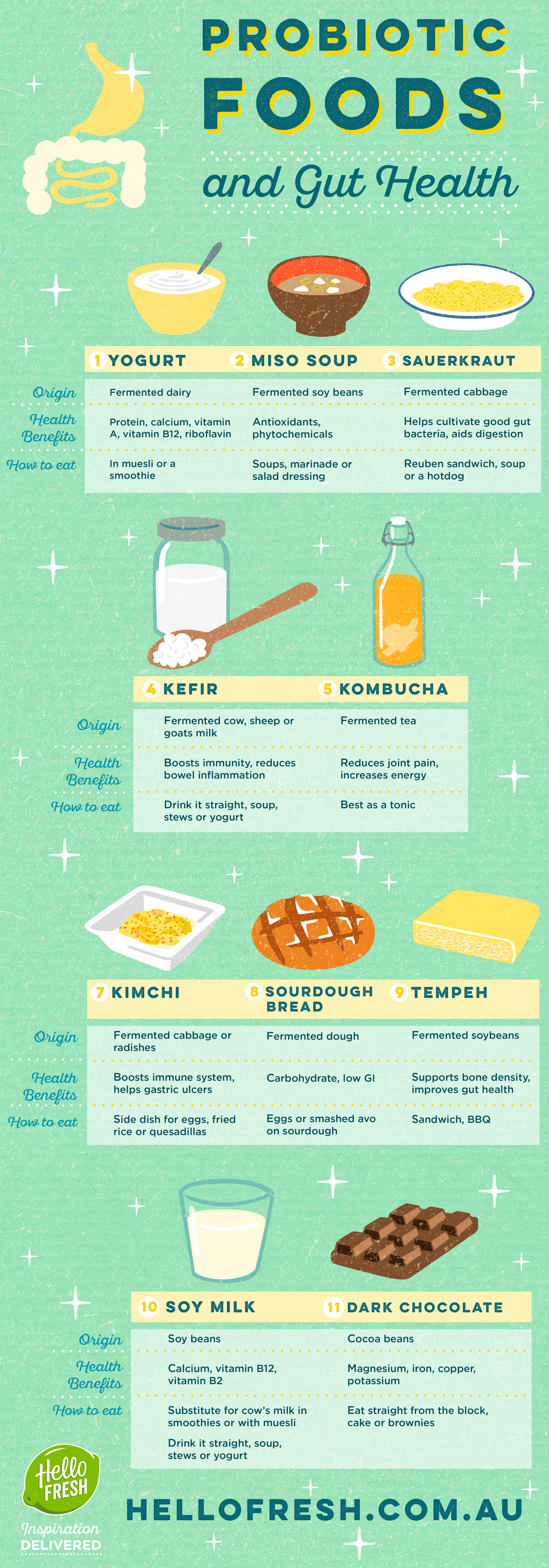
Yoghurt
We don’t know about you but, for us, yoghurt is the reason we leave the bed each morning. We love this morning elixir and we bet you do to. Can you taste it? It’s so rich and creamy. We bet you’re thinking about it right now! The good news is yoghurt has some killer health properties too. For those looking to lose weight, lower blood pressure and reduce the risk of type 2 diabetes, as well as prevent colorectal cancer and osteoporosis, yoghurt is the tried and true probiotic that should be part of everyone’s diet. Made from fermented dairy and considered a superfood, yoghurt is also extremely high in zinc, magnesium, potassium, calcium and vitamins B2 and B12. What’s the best thing about yoghurt? It’s incredibly easy to add to your daily routine. Delicious with muesli and fruit in the morning or as a texture-building addition to any fruit smoothie, you’ll be reaping the rewards from your new diet in no time. For best results, always choose a yoghurt without added sugar. Enjoy!
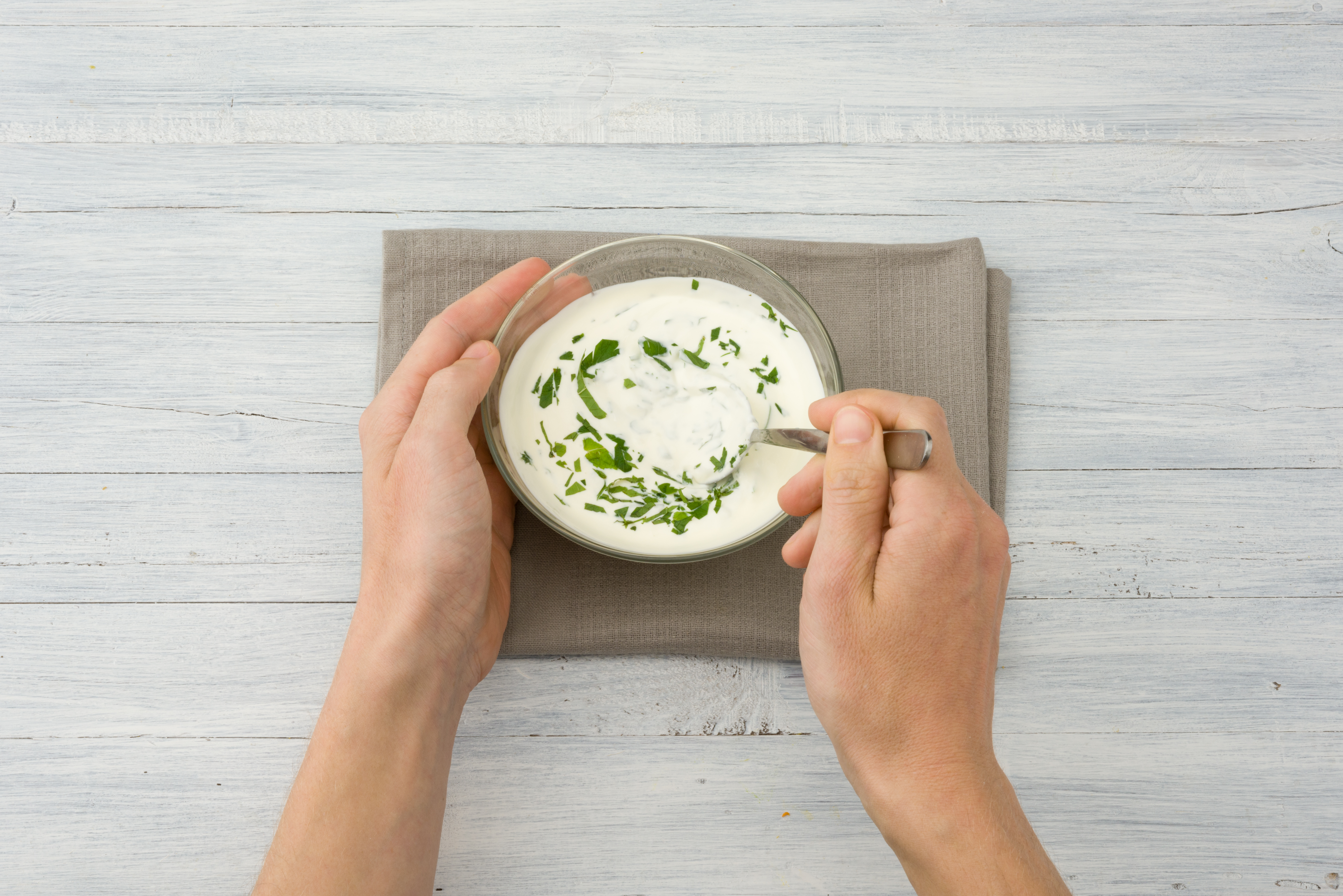
Miso Soup
Where would we be without miso soup? It’s delicious. It’s nutritious. And it can help prevent cancer. What a dream! Miso is rich in probiotic microscopic organisms that make a home in our digestive tract and have the ability to nurse us back to health. What’s more: miso is brimming with essential nutrients, antioxidant compounds and anti-nutrients. Hang on, did you just say anti-nutrient? You bet we did. Anti-nutrients or “phytochemicals” are amazing because they contain cancer-fighting properties. The fermentation process responsible for miso’s probiotics aids the anti-nutrients, helping nutrient absorption. Basically, they’re your new best friends. An essential component to the Japanese diet for thousands of years, miso is produced from the fermentation of beans. Simply visit your local Japanese restaurant for a bowl of miso soup or make it yourself at home.
Sauerkraut
My dad used to tell me no sausage was complete without sauerkraut. We would be at Bunnings buying hammers or ladders or nails and he would always buy me a sausage. Not for himself though. He would say, ‘No sauerkraut … not interested!’ Sauerkraut is a miracle worker on your gut health. Densely packed with a wide range of good bacteria commonly found in lactic acid preserved foods, sauerkraut is an incredible way to rebuild nourishing gut bacteria levels often reduced by antibiotics and daily wear and tear. Made from finely cut fermented cabbage, this ancient technique naturally alters the food’s chemical make up and introduces powerful probiotics extremely beneficial to the body. So maybe my dad was right. Maybe no sausage is complete without sauerkraut! Arguably delicious, this nutritious food also works a treat when added to soups, pork and duck dishes.
Kefir
Even is kefir was terrible for you, made you break out and put on weight, we would probably still drink it. The reason? It tastes like the sweet sun rising. For those looking to boost immunity, heal inflammatory bowel disease, fight allergies, improve lactose digestion and support detoxification, kefir is the liquid angel from heaven you’ve been searching for. One of the most probiotic dense foods on the planet, kefir contains several crucial probiotic strains responsible for gut health that, when added to your daily diet, will help you perform at your best. Obtained by fermenting cow, sheep or goats milk, once you go kefir you will never go back. While most people drink kefir straight, it also makes a fine addition to soups and stews and can be used as a replacement for milk, sour cream and yoghurt.
Kombucha
We love kombucha! Just say the word: kombucha. It sounds like it parties. And party it does: with nutrients! Super delicious and extremely good for you, the health benefits of kombucha are numerous. This powerful tonic originated 2000 years ago and has been known to improve digestion, increase energy, reduce joint pain, prevent cancer and support your immune system. Made from fermentation process between black tea and sugar, kombucha is packed with vinegar, probiotics, enzymes and b-vitamins. Usually made from black tea, kombucha can be made with green tea too. Perfect for the morning, lunch or even after dinner, kombucha is drunk the same way many of us would drink soft drink. The only difference is: it’s actually good for you.
Kimchi
Kimchi is sensational Korean delicacy packed with antioxidants and probiotics. Known to combat ageing, strengthen the immune system, fight obesity, gastric ulcers, diabetes and cancer, it’s no wonder kimchi is a staple in the Korean diet. Originating in the 7th century and produced by fermenting cabbage, kimchi is chock full of vitamins and essential amino acids. Such a miracle food, they even took it to space and produced a kimchi that was impervious to cosmic radiation! Kimchi is a delicious addition to all your favourite meals including: scrambled eggs, tacos, fried rice, quesadilla and rice bowls.
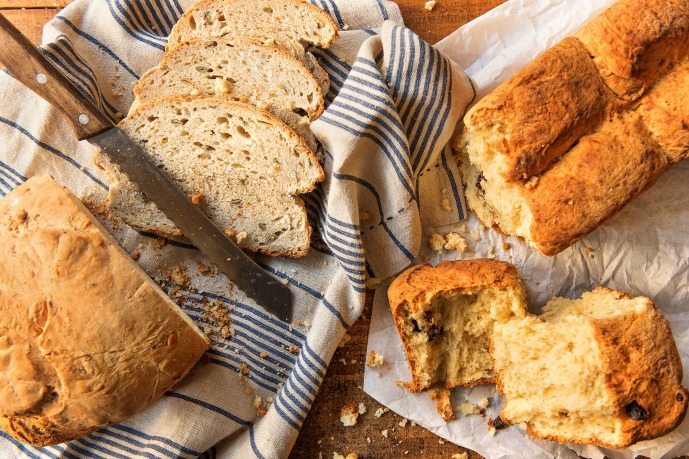
Sourdough Bread
Who knew something so delicious could be so good for you! Whether freshly baked in the morning, or dipped in stews in the evening, sourdough contains vitamins B1-B6, B12, folate, thiamine, niacin and riboflavin. Made from a starter kit that acts as a yeast, many people say that each sourdough loaf has its own personality! Another reason sourdough is awesome: due to its low position on the glycemic-index due it will keep you feeling full for longer, which makes a great alternative to those other unhealthy, sugar-filled breakfasts. To make the most of your sourdough bread, we recommend serving it beneath poached eggs, or try it with smashed avocado complete with salt, pepper and olive oil.
Tempeh
Some call it tempeh, others call it nature’s holy grail. Tempeh is a fermented soybean product whose origins lie in beautiful, tropical Indonesia. It boasts a host of nutritional benefits from cholesterol reduction, improving menopausal symptoms, to supporting bone density! It is also a complete protein for all those vegetarians out there looking for meat-free alternatives. Unlike it’s better known sibling, the tofu, tempeh is made by fermenting soybeans and, through this process, becomes host to millions of probiotic microflora that’ll have your gut thanking you for years! Why not try grilling some marinated tempeh on the barbie, or slice thinly and fry to add some crunch to your veggie brekkies.
Soy Milk
Not everyone is equipped to handle the gut-busting effects of dairy. So, what’s the solution for those of us who love a good scoop of ice cream or a delicious chocolate milkshake on a hot summer’s day? Introducing: Soy milk, duh! In addition to being a great source of protein, calcium, iron, riboflavin and B12, soy milk is naturally blessed with probiotic benefits. Soy-based yoghurts are also becoming more widely available, as are ice creams for the sweet tooths out there. Enjoy them any way you would normal milk, yoghurt and ice creams and treat your belly to a dose of good bacteria while you’re at it.
Dark Chocolate
Remember when your parents told you chocolate was bad for you? Well guess what, Mum! Dark chocolate might just be here to save the day! Containing magnesium, magnese, fibre, iron, copper, selenium, phosphorus and potassium, dark chocolate has been shown to lift mood and improve gastrointestinal flora due to its probiotic nature. While all chocolate is made from cacao, dark chocolate occurs when the chocolate content comprises 70% cacao or higher. So say goodbye to that guilty conscience because not only does dark chocolate taste great, it’s incredibly good for you as well. Eat it straight from the block, prepare a cake or make some brownies. Whatever you choose, we know you’ll love it!
To get advice on all things healthy, don’t forget to visit Stephanie’s blog and follow her on Facebook and Instagram.


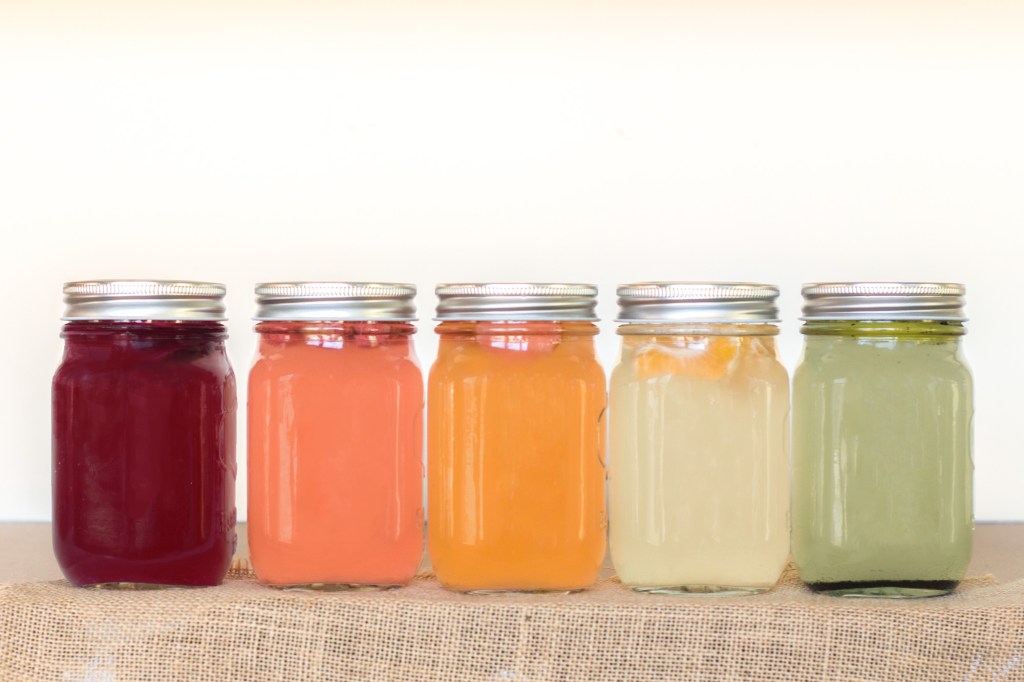





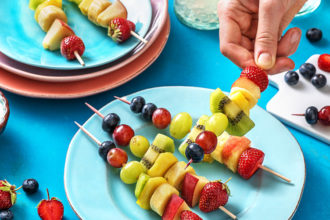

Regarding packaging material, specifically the freezer packs, your instructions used to say to dispose of gel down the sink. Now you are saying in the rubbish. Which is it??
nice blog and thanks for sharing the great tips. these food are also used for lose weight………….weight loss diet